Our Work
Founded in 2014, the Center on Privacy & Technology is a leader at the intersection of privacy, surveillance, and civil rights.
Latest Work
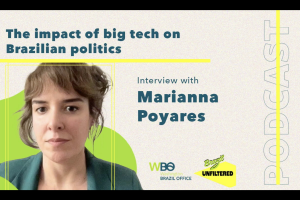
Privacy Center Fritz Fellow on “The Brazil Unfiltered” podcast
Marianna Poyares spoke with Prof. James Green (Brown University) on the Brazil Unfiltered podcast episode "The Impact of Big Tech on Brazilian Politics" about the reception in Brazil of Meta's recent decision of ending fact-checking and its impact in the upcoming Brazilian elections.
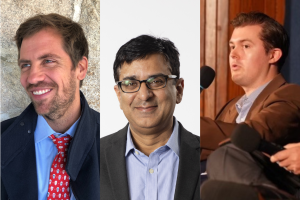
Distinguished Fellows Announced
The Privacy Center announced three new Distinguished Fellows: Antón Barba-Kay, Anil Kalhan, Justin Sherman who will have a formal working relationship with the Center during the duration of their fellowship.

Distinguished Fellow Gabrielle Rejouis Joins Data & Society’s 2024 Affiliate Class
Distinguished Fellow Gabrielle Rejouis was selected to join Data & Society's 2024 Affiliate class. She will continue collaborating with the Labor Futures program at Data & Society.

The Privacy Center Co-Hosts Annual Privacy Law Scholars Conference
The Institute for Technology Law & Policy and the Center on Privacy & Technology co-hosted the annual Privacy Law Scholars Conference (PLSC) at Georgetown Law on May 30 and 31, 2024. PLSC is the premier academic conference of privacy, law, and technology scholars, researchers, and practitioners in the world.

Watchword Prize Winner Announced
The Center announced the winner of the inaugural Watchword Prize: “Watchman, What of the Night?” by author Michael Colonnese. The poem is posted on the Center's website and available to read. Poems were judged by acclaimed poet and Georgetown faculty Carolyn Forche.
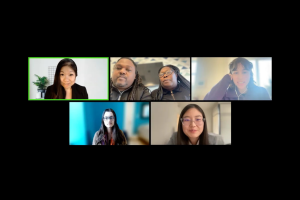
“5 Takeaways from the Privacy Center’s Community Teach-in on Algorithmic Housing Discrimination” blog
On December 15, 2023, the Center on Privacy & Technology at Georgetown Law hosted a virtual teach-in on algorithmic housing discrimination in DC. Associate Emerald Tse summarized five key takeaways on our blog. Read the whole blog here.

Virtual Teach-In: Algorithmic Housing Discrimination in D.C.
Senior Associate Cynthia Khoo, Director of Research and Advocacy Stevie Glaberson, and Justice Fellow Emerald Tse coordinated a virtual teach-in on algorithmic housing discrimination in DC. The teach-in featured speakers with legal and research expertise in or firsthand experiences of algorithmic housing discrimination, including: Natasha Duarte (Upturn); Susie McClannahan (Equal Rights Center); Troy and Monique Murphy (individual members of the Fair Budget Coalition), and Wanqian Zhang (3L at Georgetown Law and Student Attorney at the Communications and Technology Law Clinic).

Cited Report: The New Yorker
The New Yorker published an in-depth piece on technology and policing that cites our report The Perpetual Line-Up and Laura Moy's 2021 law review article.
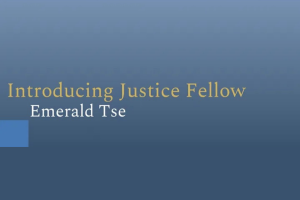
“Meet The Team: Q&A With Emerald” blog
In November 2023, Emerald Tse joined the Privacy Center team as a Justice Fellow. Read our Q&A with her on our blog.
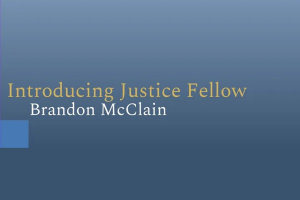
“Meet The Team: Q&A With Brandon” blog
In October 2023, Brandon McClain joined the Privacy Center team as a Justice Fellow. Read our Q&A with him on our blog.
